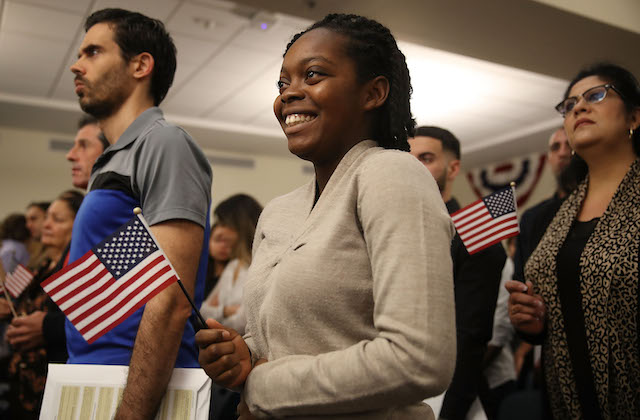While more than half of adults in the United States favor racial and ethnic diversity, many feel it poses challenges to policymakers, per a new study released today (May 8) by Pew Research Center.
The report, which surveyed 6,637 adults in the U.S. in January and February of this year, shows that White, Black and Latinx adults are almost equally likely to say racial diversity is good for the United States (some questions include responses from a small sample of Asian American Pacific Islanders). However, African Americans place more value than White and Latinx people on diversity in the workplace and integration, the study shows. And many said that a more racially mixed population creates challenges for policymakers. From the survey:
rnt
A sizable share of Americans (47 percent) say having a population that is made up of people of many different races and ethnicities makes it harder for policymakers to solve the country’s problems; a small share (7 percent) say it makes it easier for policymakers and 45 percent say it doesn’t make much difference. Whites (52 percent) are more likely than Hispanics (42 percent) and Blacks (30 percent) to say the country’s diversity makes it harder for policymakers to solve problems.
{{image:2}}
Views on the positive effects of racial and ethnic diversity on U.S. culture shift when adults are asked about people of color exceeding White people as the majority of the population, which the U.S. Census bureau estimates will happen by the year 2044. The report also shows that half of all White Republicans surveyed said it would bother them to hear someone speaking in a language other than English in a public setting. Researchers also cite a separate Pew survey from December 2018 in which 49 percent of adults said a population with people of color in the majority would hinder American customs and values.
The most recent survey shows how many of these views on diversity carry over into local communities, particularly in the workplace and schools. Although many work environments increasingly embrace diversity, employers are still less likely to positively weigh race as a factor in hiring and promotion decisions. A majority of those surveyed also believe students should remain in local schools, even if they are less diverse. However, Black and White adults hold vastly different views on both issues.
rnt
Three-quarters of Americans say it is very (49 percent) or somewhat (26 percent) important for companies and organizations to promote racial and ethnic diversity in their workplace. Blacks are particularly likely to say this is very important: 67 percent say this, compared with 52 percent of Hispanics and 43 percent of Whites.
t
[…]
t
Most Whites (62 percent) say students should attend schools in their local community, even if most schools are less diverse as a result. In contrast, about seven-in-ten Blacks (68 percent) think students should go to schools that are racially and ethnically mixed, even if they’re not in their local community. Hispanics and Asians are about evenly divided on this issue.
Read the full study here.
